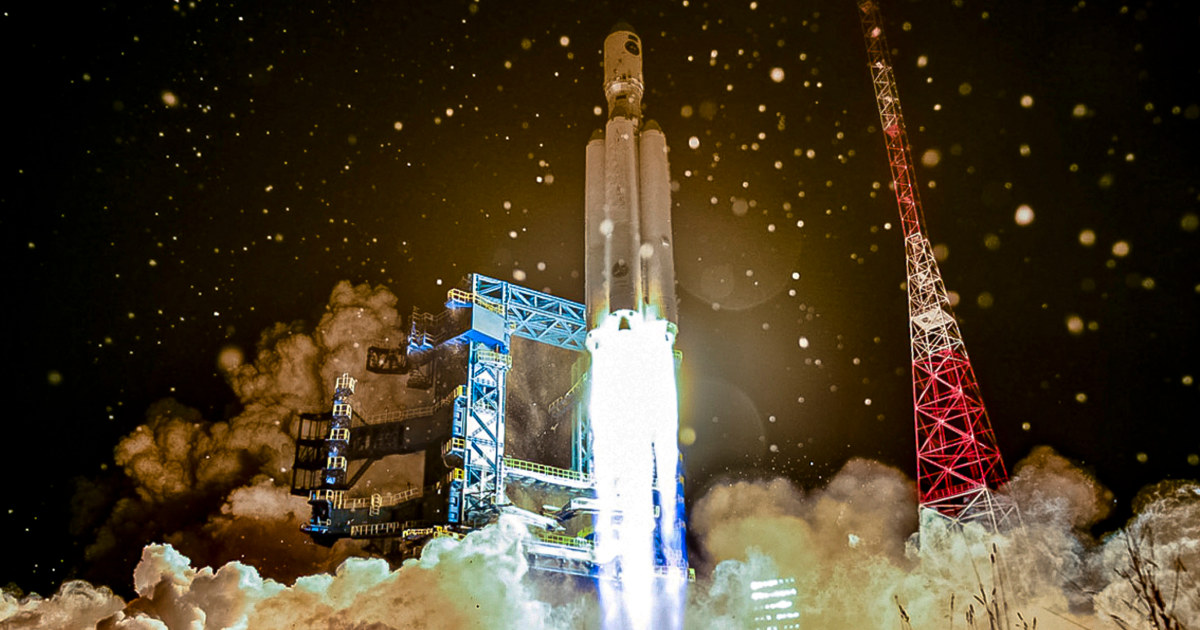
Part of a failed Russian rocket that was stranded in orbit is set to come crashing down to Earth on Wednesday, but it's unclear precisely when — or where — the uncontrolled re-entry could take place.
Astronomers who have been tracking the object's path in space say the rocket part will likely hit Earth's atmosphere soon, within a roughly hourlong window stretching from 3:27 p.m. ET to 4:21 p.m. ET.
During that time, it will pass over the Indian Ocean, Southern Ocean and swaths of the Pacific Ocean. Near the end of the projected re-entry window, the rocket part is set to fly over Mexico and a narrow band of Texas, but experts said it's unlikely that the out-of-control rocket part will hit land.
"It'll probably be down before it crosses Mexico and a few miles into Texas," said Jonathan McDowell, an astronomer at the Harvard & Smithsonian Center for Astrophysics.
As is the case with most pieces of space debris that tumble back to Earth, the rocket parts that survive the fiery journey through the planet's atmosphere will likely fall over water.
"Most of the world is ocean, so it's just playing the odds," McDowell said.
Though the rocket part could tumble to Earth soon, it may be hours before the U.S. Space Force and other agencies confirm the time and location of re-entry to the public, he said.
The wayward piece of debris is the upper stage of a Russian-built Angara A5 rocket, one of the country's newest fleet of heavy-lift launch vehicles. The Angara launched on a test flight Dec. 27 from Russia's Plesetsk Cosmodrome. The uncrewed rocket carried a dummy satellite onboard, according to Russia's space agency.
Shortly after launch, an engine malfunctioned on the rocket's Persei upper stage, stranding the booster in low-Earth orbit. That section of the rocket, which is set to crash to Earth, measures around 23 feet long and, together with its dummy satellite onboard, is about 4 tons of material.
Most of the rocket's upper stage will likely disintegrate as it passes through the atmosphere, but some fragments may make it through intact.
"You might get a few hundred kilograms surviving to the surface," McDowell said. "Most of it will melt, but some of the denser engine parts will probably survive."
This latest incident mirrors a similar out-of-control rocket that tumbled to Earth recently. A 10-ton section of a Chinese Long March 5B booster fell to Earth in May 2021, landing in the Indian Ocean.
"entry" - Google News
January 06, 2022 at 05:08AM
https://ift.tt/3zup2h8
Russian rocket part to make uncontrolled re-entry toward Earth - NBC News
"entry" - Google News
https://ift.tt/3f5ZAUJ
https://ift.tt/3d6LMHD
Bagikan Berita Ini














0 Response to "Russian rocket part to make uncontrolled re-entry toward Earth - NBC News"
Post a Comment